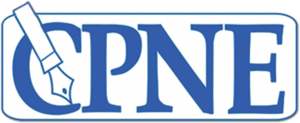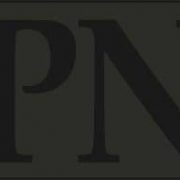Council of Pakistan Newspaper Editors 1st Floor, New Block-1, Abdul Sattar Edhi Hockey Stadium, Liaquat Barracks, Opp Jinnah Hospital, off Shahrah-e-Faisal, Karachi.
CPNE – DW ACADEMY MEDIA ETHICS AND JOURNALISTS SAFETY PROJECT
This project is based around four thematic areas i.e. Ethical Standards in Crisis Reporting, Psychological Risks, Physical and Digital Safety of Journalists. The idea is to raise awareness and train in house media persons & journalists of selected media houses so they could develop a self-sustained community that upholds ethics in journalism, can cope up with psychological trauma and burn-out, anticipate and mitigate physical and digital risks.
Introduction & Importance of four thematic areas
Ethical journalism
Journalism ethics and standards comprise principles of ethics and of good practice as applicable to the specific challenges faced by journalists. Historically and currently, this subset of media ethics is widely known to journalists as their professional “code of ethics” or the “canons of journalism”. The basic codes and canons commonly appear in statements drafted by both professional journalism associations and individual print, broadcast and online news organizations. While various existing codes have some differences, most share common elements including the principles of-truthfulness, accuracy, objectivity, impartiality, fairness and public accountability-as these apply to the acquisition of newsworthy information and its subsequent dissemination to the public.
Psychological risks
Journalists, especially reporters who cover conflict and disaster, are as vulnerable to stress and trauma as other professionals, from firefighters and disaster counselors to combat soldiers. Foreign reporters often work alone in the field, with limited support. The results can be tragic when stress rises to debilitating levels and goes untreated. Journalists may abuse drugs or alcohol and struggle in their marriages and personal relationships. They may endure, often silently, such recurring problems as lack of sleep, hyper-arousal or emotional numbness. Trauma, when sustained and serious, can affect the performance of journalists, shorten their careers or require sick leave. News organizations have a long-term interest in making sure that journalists are aware of trauma and can access counseling. A trauma program needs to be part of an organization’s efforts to promote employee well-being and health in the workplace. Newsrooms have an ethical obligation to establish such programs, since it is they who send journalists into the field.
Physical and Digital Security Challenges
Journalism can be a risky business. Reporters covering violence necessarily work in unsafe circumstances, and news organizations have to worry about getting sued for defamation or sanctioned by one government or another. But there are less dramatic but equally grave risks created by the ubiquitous use of digital communications technology, from email to camera phones. If one of your colleagues uses weak passwords or clicks on a phishing link, more sophisticated efforts are wasted. But assuming that everyone you are working with is already up to speed on basic computer security practice, there’s a lot more you can do to provide security for a specific, sensitive story. If you know that your work as a journalist will involve specific risks, you need a specific security plan. This work begins with thinking through what it is you have to protect, and from whom. This is called threat modeling and is the first step in any security analysis. The goal is to construct a picture-in some ways no more than an educated guess—of what you’re up against.
Achievements
- CPNE got success in unifying the editor’s community on 4 thematic areas regarding ethical standards and Journalist safety, they declared in a joint declaration that that they support and will use the CPNE developed tools in their workflow.
- CPNE initiated first Help line for Journalists and editors in Pakistan.
- CPNE initiated Pakistan first Editors club and got joint consensus of working & owner editors on the topic.
- CPNE developed manuals, check lists and tools for ethical and secure work flow in media house for conflict reporting.
- CPNE Build its structures and capacities in research on code of conduct, ethical journalism, crisis reporting and journalists safety, plus assessed the Knowledge, attitude and practice at organizational and individual level in 4 major media houses.
- Get connected with 4 media houses, trained multipliers for media houses in-house trainings for produce qualified journalists.
- 15 Training / Couching sessions were conducted in in 4 media houses… GEO TV, DAWN TV, VSH TV and EXPRESS TV, more than 21 Participants attended the training sessions and show good knowledge after the couching sessions and all of them are in contact with CPNE regarding implementation.
- CPNE develop 4 manual and checklists which used at trainings of media houses and will use in media houses workflow and in house trainings as per declaration of owner and working editors.
- The percentage of high quality crisis reporting of qualified media houses increases by at least 20%.
- CPNE expanded its capacity by developing the design and formats of baseline. Knowledge, attitude and practice at organizational and individual level are assessed of more than 55 journalists, media persons, photo journalists and sub editors and taken 16 in-depth interviews from top management at four media houses.
- CPNE got first hand assessment of Number of existing tools integrated in 4 Media Houses about four thematic areas.
- Regarding Ethical standards in crisis reporting, there are only 4 tools in use out of 17 mention tools,
Out of 26 mention tools regarding Physical safety of Journalists 9 are available at three and 5 tools at one media house. - Regarding Psychological Risks Out of 16 mention tools none is available
- Regarding Digital Safety Out of 16 mention tools 2 are available at three and 1 at One media house
Target Groups
- CPNE worked with the target group of chief editors, owners, journalists, editors, media persons, camera men, human resource persons etc.
- We directly reached to more than 91 media persons including owners, editors, journalists and media staff at 4 media houses
- Indirectly whole media house where we conduct our focus group discussion and trainings and entire media industry is penetrated
- Engaged 73 high level editors and chief editors in meetings
- The target Group was actively participated and freely shared the experiences.
- The pre workshop evaluation it indicated that the participants have less than 50% knowledge about the issues related to ethical standard.
- The knowledge share is more than 60% about the issues related to physical safety.
- Participant’s knowledge about digital safety and psychological risks was almost insignificant and need to take serious steps to develop these sectors.
- Journalists working in Geo News and Dawn News have an orientation about the ethical standard and somehow they have been applying them in their assignments.
- During the training participants took keen interest.
- The post training evaluation showed that the participants gained knowledge and engaged in the process of learning.
- Further participants asked for these short orientation sessions on regular bases.
- All of them are in contact with CPNE regarding implementation
Best practices
The Basisline activity created a lot of awareness and raised the interest level in journalists and media persons, especially Focus Group Discussions penetrated the whole media house staff and in depth interviews sensitized the decision makers.
The Subject specialist made trainings more useful and vibrant, journalists and media persons showed a lot of interest to them and asked questions.



